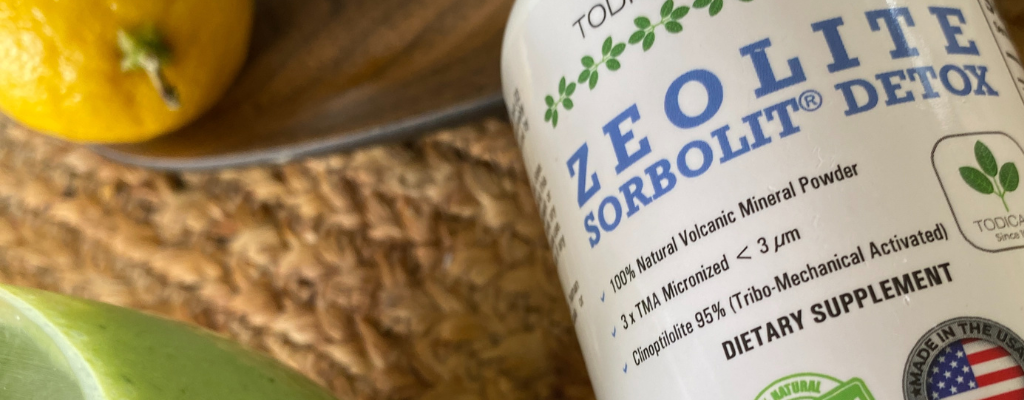Diabetes is a prevalent and potentially life-threatening condition affecting millions worldwide. Managing diabetes often involves a multifaceted approach, including lifestyle modifications, dietary changes, and medications. In recent years, natural remedies, such as zeolite, have garnered attention for their potential role in diabetes management.
In this blog, we’ll discuss the unique properties of zeolite and explore how it can benefit those living with diabetes, drawing insights from both scientific research and the book "The Stone of Life" by Dr. Ilza Tribnig.
So, let’s get started.

Understanding Zeolite
Zeolites are crystalline solids composed of aluminum silicate, exhibiting a microporous, three-dimensional structure. [i] They contain water within their crystalline structure. They are formed through chemical reactions between volcanic ash and alkaline surface water. This unique crystalline structure gives zeolites their special properties, including ion exchange and molecular adsorption.
Key Properties and Applications
Zeolites possess several valuable properties, making them useful in various fields:
- Ion Exchange: Zeolites can exchange cations without altering their structure. This property is employed in detoxification, removing toxins and heavy metals from the body.
- Adsorption: Thanks to their porous structure, zeolites can adsorb various substances, making them useful as filters.
- Catalysis: Some types of zeolites serve as catalysts in the chemical industry.
In medicine and healthcare, zeolites are used for blood purification, digestive improvement, and diabetes symptom management.

Understanding Diabetes
Diabetes has two primary types:
Type 1: For individuals with type 1 diabetes, the pancreas fails to produce insulin due to an autoimmune response targeting the islet cells responsible for insulin production.
Type 2: In this type, patients observe reduced insulin production by the pancreas coupled with the body's development of insulin resistance. [ii]
Prevalence and Consequences
Diabetes is a leading risk factor for mortality worldwide. It can lead to severe complications, including heart disease, stroke, kidney failure, blindness, and limb amputation. The increasing prevalence of diabetes underscores the need for more effective prevention and treatment strategies.
Zeolite in "The Stone of Life" by Ilza Tribnig
Dr. Ilza Tribnig's book, "The Stone of Life," presents zeolite not merely as a mineral but as a potent tool for improving health, especially for those with diabetes. Her approach is rooted in a deep understanding of zeolite's natural properties and its impact on the human body.
Key Ideas from the Book
Dr. Tribnig emphasizes that zeolite's ability to exchange ions and adsorb toxins can be particularly beneficial for people with diabetes. She suggests that zeolite can enhance metabolic processes, reduce toxins that affect insulin resistance, and improve overall health.
The Link Between Tribnig's Theories and Diabetes
One crucial aspect highlighted by Tribnig is zeolite's potential to influence blood sugar levels. Regular zeolite consumption may help stabilize blood sugar levels, a critical aspect of diabetes management. This is attributed to its ability to enhance cell sensitivity to insulin and maintain normal glucose metabolism. Additionally, zeolite's detoxification function can enhance pancreatic function and insulin efficiency.

Zeolite and Blood Sugar Regulation
Recent studies reveal that zeolite can improve glucose metabolism and reduce insulin resistance. One study demonstrated that regular zeolite intake could lower blood sugar levels in type 2 diabetes patients. This effect is due to zeolite's unique structure, allowing it to adsorb excess glucose and toxins from the body, facilitating the normalization of metabolic processes.
Applying Zeolite in Daily Life
Incorporating zeolite into your daily routine can be a valuable complement to traditional diabetes management methods. However, like any supplemental approach, it should be used consciously and cautiously.
Recommendations for Use
- Dosage: Ensure you follow the recommended dosage, typically in the form of powder or capsules. Consult a healthcare professional for specific guidance.
- Consistent Usage: To maximize its effectiveness, use zeolite regularly. However, avoid prolonged usage without breaks.
- Combination with Diet and Lifestyle: Zeolite works best when combined with a balanced diet and a healthy lifestyle, particularly when managing diabetes.
- Health Monitoring: Regularly monitor your blood sugar levels and overall health when using zeolite, especially when starting.
Cautions and Contraindications
While zeolite is generally considered safe for most people, there are limitations and precautions to consider:
- Pregnancy and Nursing: Pregnant and nursing women should avoid zeolite without consulting a healthcare provider.
- Chronic Conditions: Individuals with chronic illnesses, particularly kidney issues, should consult a healthcare professional before using zeolite.
- Drug Interactions: Zeolite may interact with certain medications, potentially altering their effectiveness.
- Product Quality: Choose high-quality zeolite from reputable manufacturers to avoid impurities and contaminants.

Conclusion
In conclusion, zeolite holds promise as a natural remedy to enhance diabetes management and overall health. However, it should be viewed as a part of a holistic approach, encompassing medical supervision, dietary modifications, and an active lifestyle.
By considering these aspects, zeolite can become a valuable component of strategies aimed at improving the quality of life for individuals living with diabetes, contributing to their long-term health and well-being. Continued research is essential to deepen our understanding of zeolite's potential in diabetes care and ensure product quality and purity in its medical and health-related applications.
References
[i] Admin. (2023, May 11). Zeolites - definition, formula, zeolites preparation, structure, uses. BYJUS. https://byjus.com/jee/zeolites/
[ii] Type 1 vs Type 2 Diabetes | UVA Health. (n.d.). https://uvahealth.com/services/diabetes-care/types#:~:text=In%20diabetes%20type%201%2C%20the,body%20becomes%20resistant%20to%20insulin.
